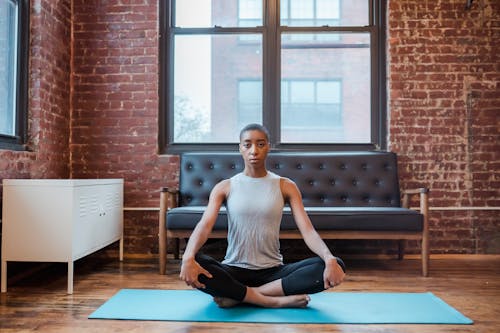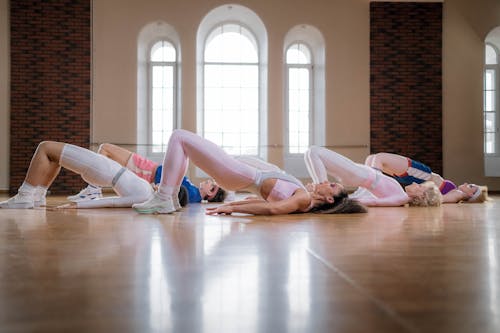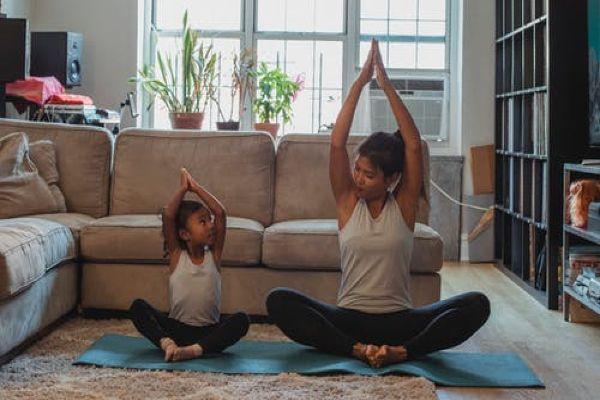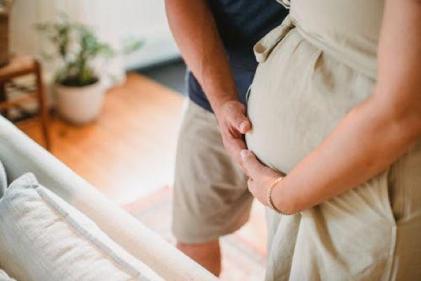When you think of someone practising pelvic floor exercises, who do you think of? A new mum, the first few weeks after giving birth? You wouldn’t be alone.
But pelvic floor exercises are essential for lots of us, not just new mothers and should be an essential part of our routine according to a pelvic physiotherapist.
So what are pelvic floor exercises?
‘Pelvic floor exercises strengthen the muscles around your bladder, bottom, and vagina or penis. Strengthening your pelvic floor muscles can help urinary incontinence, treat pelvic organ prolapse, and make sex better too. Everyone can benefit from doing pelvic floor exercises.’ – NHS website

How do we find them?
You can feel your pelvic floor muscles if you try to stop the flow of urine when you go to the toilet. (It's not recommended that you regularly stop the flow of urine midstream as it can be harmful to your bladder.)
Why are they important?
If you're pregnant or planning to get pregnant, you can start doing pelvic floor exercises immediately. The exercises will lower your chance of experiencing incontinence after having your baby.
Strengthening and training the pelvic floor muscles can help also reduce the symptoms of erectile dysfunction in men, so it’s not just an important exercise for women.
Great Ormond Street Hospital explains that the pelvic muscles are at the base of our pelvis, below the bladder. They are ‘sling’ shaped and both men and women have them. They are essential to build up, as weak ones can mean your urine may leak between wees and being too tight can make it difficult to wee.

Dr Laura Lenihan recently shared a post she collaborated with Clare Bourne on. Laura is a GP and Clinical Director of the Dr. Laura Clinic in Galway and Clare Bourne is a pelvic physiotherapist based in London. Dr Laura’s diverse background lends itself to her interests in health education, Instagram and aesthetics. She has previously received a honours Bachelor of Commerce Degree from the National University of Ireland, Galway and also a honours Masters of Fashion Science from Glasgow Caledonian University.
‘Let’s look at the importance of pelvic floor.’ Laura shared on her Instagram caption. ‘Thanks to @clarebournephysio for this great post!’
‘The pelvic floor muscles are a really NB muscle group for a number of reasons as they:
- help to prevent any leaks of urine or faeces
- help us control our wind
- provide support for our pelvic organs: the bladder, bowel & womb & help to keep them in the correct position
- provide support to the pelvic bones, working with other muscles to create good pelvic stability
- are important for sexual pleasure
They are often talked about most during pregnancy & postnatal, however they are important for all women and in fact men, throughout their lives. The challenge is, lots of us don't know how to do our pelvic floor muscle exercises correctly or where they even are.
Key pointers:
1. Don't use your bottom muscles
2. It is important to breath as your diaphragm works with the pelvic floor. So deep breath in and keep pelvic floor relaxed, then as you exhale do your pelvic floor squeeze.
3. Don't practice on the toilet when stopping a wee (good test but not a routine place to do them!)
We encourage two types of exercises:
1) Fast: Just contract & FULLY relax before you contract again.
2) Slow: This is referring to holding the activation. So hold wind, hold the activation for 10 seconds whilst you breathe (very important) then let go fully.
The NICE guidelines state that we should be aiming for AT LEAST 8 contractions performed 3 times a day if you have symptoms. We often recommend trying 10 fast and 10 slow each time. Try in different positions, lying, sitting and standing. You are aiming to be able to do all of them in standing eventually.
They are important whether you had a vaginal delivery or caesarean section - they are for life, so build them into your routine...you won't regret it.’
For more information and exercises, check out Great Ormond Street Hospitals tips and tricks to build up your pelvic floor muscles!







